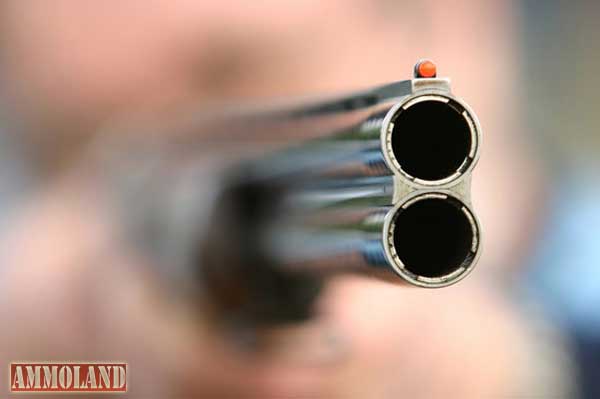By Paul Gallant, Alan Chwick, & Joanne D. Eisen


Scottsdale, AZ – -(Ammoland.com)- We predict that a global Arms Trade Treaty will come into force late this year.
Diplomats are currently preparing for a final negotiating conference, to be held at the UN between July 2 and July 27, 2012.
So, what might an ATT look like?
The weapon-prohibitionists’ goal is a “robust” treaty, with States accepting outside control of their weapon transactions, or suffering international consequences if they don’t. And if one looks at the picture as a whole, all one sees and hears is an hysterical insistence on “robustness” from the Treaty’s proponents, parroted by the global press. They mistakenly expect that they will be able to prevent the flow of arms to human rights abusers, and thereby reduce global violence.
But if one scrutinizes the multitude of disagreements between the States, one can already see the fault lines in the Arms Trade Treaty forming. That’s because many States are reluctant to cede sovereignty to the UN. And from this, we can make some reasonable predictions.
- We predict that small arms will be included, because that’s what this treaty is all about in the first place. But ammunition has, at best, a 50-percent chance of inclusion.
Although there already exists a UN register for 7 categories of conventional arms (UNROCA), the UN has suffered a decade of failure when it comes to control of Small Arms and Light Weapons (SALW). So, at the very least, the prohibitionists want small arms, light weapons, and ammunition added to those 7 categories of weapons, creating the “7+1+1” paradigm.
Amnesty International has stated that there would be “gaping holes” in such a treaty if small arms and ammunition were not included. And proponents will do whatever it takes in order to achieve the goal of global firearm control.
As of September 2011, many States, among which are Barbados, Ghana, Jamaica, Nicaragua, and Zambia, agree with including SALW and ammunition. They believe that this is necessary if the Treaty is to yield humanitarian and human rights benefits, regardless of the extreme difficulty of doing so.
Other States, including the States of the Non Aligned Movement (NAM), prefer that the Treaty remains limited to the original 7 categories. China also has taken a position against the 7+1+1.
We know that China is a massive arms exporter, even to human rights violators. It is a matter of record that China has, in the past, not abided by treaties which it had no intention of ever keeping. Examples of these include the Convention against Torture (CAT), and the Convention on the Rights of the Child (CRC). It would be easy for China to gain a veneer of cooperation if it appeared to compromise “under pressure.”
As for the US, it might seem confusing that the Obama government has taken a position against the inclusion of SALW and ammunition in the forthcoming Treaty. Yet, the US officially supports the inclusion of SALW into the UNROCA itself, as clearly stated in October 2011 by Laura E. Kennedy, one of the representatives to the UN.
Are we that naïve to believe that Obama will choose the side of the fence that is least firearm-restrictive?
So, with these factors in play, it would be logical to strike a compromise: SALW in, ammunition out.
- We predict that a minimal Implementation Support Unit (ISU) will be approved, and will ultimately grow into a global BATFE on steroids.
ISUs collate, collect, and store the information they gather. They share the information with other States, and provide support and advice with this information, while additionally performing communication and liason roles. Countries are already comfortable with the ISU concept, which has been used in previous UN conventions, such as the Land Mine Ban and the Biologic Weapons Ban.
But there is a huge difference between the magnitude of the ATT and the Mine or Biologic Weapons Bans. Even the October 3, 2011 Arms Trade Treaty Monitor noted: “There is no obvious, existing mechanism that exists to coordinate such a logistical behemoth.” (It is a rare moment when a proponent of the “7+1+1” actually agrees with us.) Several nations, including the UK, prefer a minimally mandated ISU. Ted Bromund, Senior Research Fellow at the Heritage Foundation, stated in a UN Web Memo dated July 21, 2011, that “Such a ‘limited’ role would not remain limited for long.”
And how could it? An ISU would be run by and for weapon-prohibitionists, who would be free to create regulations as needed. After the ATT is in force, the decisions of those bureaucrats will not be constrained by the need for a consensus.
- We predict that victim reparations will not be included in the body of the Treaty.
The concepts of restitution and compensation are ostensibly intended to deal with “restoring justice,” and increasing “the focus on the criminal responsibility of perpetrators of gross human rights abuses and their accomplices.” Some States, like Uruguay, want a strong provision for victim assistance, while most States, including Italy and Chile, do not.
Syria suggests that funding for this provision should come from weapon-exporting States, such as the United States. It would be ludicrous for Uruguay, a country that perpetrated many human rights abuses itself, to come knocking at our front door for funding that would absolve them of their own deliberate acts against the human rights of their citizens.
And it would also be ludicrous that we should be expected to foot the bill.
Furthermore, one may wonder why the cause of “victim reparations” should be espoused by weapon-prohibitionists, and included in an Arms Trade Treaty. We believe that “victim reparations” is being added to the ATT to serve as a bargaining chip—easy to use as a pawn for the purpose of compromise.
All points not included in the body of the Treaty, but remaining on the weapon prohibitionists’ wish list, will simply be shoved into the Treaty’s preamble, lying there to await a more favorable climate for their enactment.
And that entire Treaty will create a new global weapon norm which will affect our own US firearm norm.
About:
Dillon Precision is the only choice for all your reloading needs. Consider the quality and innovation behind each product, the lifetime “No BS” warranty, and the unparalleled reputation for post-sale service, and there simply isn’t any other option. Your only decision is which machine to buy. Dillon offers a machine for every budget or reloading need. From the “pistol only” Square Deal, the “workhorse” RL 550B, the fully progressive XL 650, to the commercial grade Super 1050. They even offer a progressive shotshell loader that blows away everything on the market. Visit: www.dillonprecision.com
